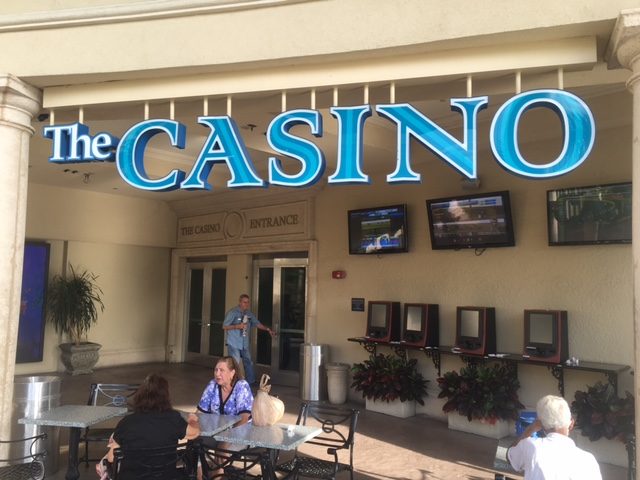
Everyday gamblers likely haven’t seen much of a difference since Genting took over operations of Gulfstream Park Casino in Hallandale Beach, Florida — but that’s because the company’s executives are still evaluating what they have.
Genting, which bought the Miami Herald building in 2011 with hopes of opening a waterfront resort-hotel casino, confirmed last week that it has entered into a consulting agreement for the casino portion of Gulfstream Park.
South Florida is still a growing casino market, with voters having approved slots a little more than a decade ago for Miami-Dade and Broward counties. And the Seminole Tribe casinos, while in place for a few years longer, didn’t experience major growth until a 2010 agreement with the state brought them blackjack.
Genting obviously was attracted to Gulfstream because the property touches the Miami-Dade County line and lucrative neighborhoods, such as Aventura, are only minutes from Gulfstream. But their game has always been about larger casinos, which it operates under its Resorts World brand.
So Genting is kind of looking at a clean state. Here’s their situation:
Advantages: Genting is a proven casino operator, with casino people running it. (Most casinos here began as horse tracks, dog tracks or jai alai frontons, with slots and poker later added to help their dying businesses.) Genting also has a worldwide database of more than 6 million players, and extolling the virtues of casino action in South Florida — with adjoining horse racing and a mall — is likely a pretty easy sell. Genting officials also could coordinate gambling opportunities with their Bimini operation. Genting opened Resorts World Bimini in 2013. Charter flights and a ship take patrons to a Hilton that opened earlier this year. The advantage for gamblers: Resorts World Bimini can offer craps and roulette, which are illegal in Florida. They also have blackjack, which is allowed only at casinos owned by the Seminole Tribe of Florida.
Disadvantages: Since Genting announced plans in 2011 to build a glitzy casino on waterfront property in Miami — and released futuristic images that rattled city leaders and state legislators — their name works against them. The company, perhaps unfairly, is perceived as an intruder. Their more immediate challenge at Gulfstream, though, is determining what to do with the slots property itself. Machines are located on two floors, and getting from the first story to the second is difficult. Do they knock everything down or just live with it? They also need to evaluate who their customers are. Can the locals, often spending less than $100 a trip, prop up the operation Genting envisions? Or will they have to scrap Gulfstream’s promotional plan – which built the customers who now frequent the casino – in favor of the bigger players.
Neutral: Florida racetrack casinos are hamstrung by a 35 percent slot tax and the lack of table games. But Genting has proven adept at workarounds. Take their Resorts World Aqueduct, for example. Even though New York doesn’t allow live cards or dice, the casino took in $845 million last year, including serving the Asian market with massive multiplay electronic craps and roulette – even making VIP rooms with electronic games as the centerpiece. What will be the goal at Gulfstream Park, which has slot revenues at about 5 percent of Aqueduct’s?
There’s also the melding of the casino with Gulfstream Park’s racing business, which is run by Austrian businessman Frank Stronach.
Stronach, now 84, spoke ill of gambling, calling it a “casino is a taxation of the poor,” but Genting executives report that he was quite cordial and encouraging in their meetings. For this thing to work, he’ll need to be.












